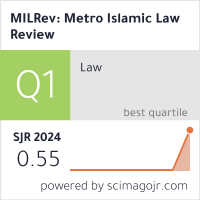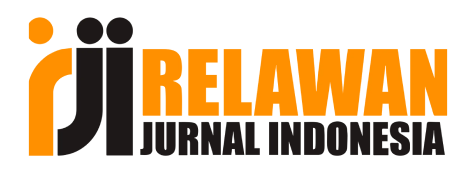Geopolitics and Muslim Countries: Navigating Challenges and Opportunities in Contemporary International Political Dynamics
DOI:
https://doi.org/10.32332/milrev.v3i2.9910Keywords:
Contemporary International Political, Diplomatic Strategy, Geopolitics, Globalization, Muslim Countries.Abstract
This study aims to analyze the role of Muslim countries in global geopolitics and how they navigate challenges while capitalizing on opportunities amid the international political dynamics in the era of globalization. As the world order undergoes significant shifts, Muslim countries face complex issues such as geopolitical tensions, regional conflicts, major power interventions, and changing strategic alliances. However, they also have opportunities to strengthen their diplomatic and economic positions through international collaboration, investment, and active roles in multilateral organizations. Using a qualitative analysis approach, this research examines foreign policy, diplomatic strategies, and international relations dynamics of Muslim countries, including their role in organizations like the Organization of Islamic Cooperation (OIC) and their relations with major powers like the United States, China, and Russia. The study employs a qualitative analysis approach with a literature review method. Data is sourced from secondary materials such as academic journals, books, policy reports, and articles relevant to the geopolitical issues of Muslim countries. This approach enables the researcher to analyze various foreign policies, diplomatic strategies, and dynamics in international relations. The data is then analyzed using a descriptive-analytical approach to explore the role of Muslim countries in global geopolitics and how they tackle challenges while leveraging opportunities in the era of globalization. The findings indicate that despite significant challenges, Muslim countries possess the potential to act as critical players in global geopolitics if they can optimize available opportunities, such as enhancing economic cooperation and diplomacy based on shared interests.
Downloads
References
Abbas, K., dan Z.S. Ahmed. “Examining the dynamics of Muslim solidarity: A comparison of the Organization of Islamic Cooperation and the Arab League.” Dalam Research Handbook on International Solidarity and the Law, 297–311, 2024. https://doi.org/10.4337/9781803923758.00017. DOI: https://doi.org/10.4337/9781803923758.00017
Ahmed, Z.S., dan S. Akbarzadeh. “Pakistan, Pan-Islamism, and the Organization of Islamic Cooperation.” Religions 14, no. 3 (2023). https://doi.org/10.3390/rel14030289. DOI: https://doi.org/10.3390/rel14030289
Alawiyah, N. Lalah, dan Muhammad Sholeh Hasan. “Hak Asasi Manusia Di Dunia Islam: Isu Tentang Hak Perempuan.” Jurnal Kewarganegaraan 6, no. 2 (11 Agustus 2022): 4142–55. https://doi.org/10.31316/jk.v6i2.3679.
Almalik, Muhammad. “Refleksi Politik Islam Kontemporer di Negara Dunia Pertama.” JISIP UNJA (Jurnal Ilmu Sosial Ilmu Politik Universitas Jambi), 1 November 2022, 20–31. https://doi.org/10.22437/jisipunja.v6i2.20387. DOI: https://doi.org/10.22437/jisipunja.v6i2.20387
Andien, Hersa Syulizar, Ananda Delia, Farida Anisa Khotimah, Restu Arissaputra, dan Muhamad Parhan. “Peran Muslim Dalam Konflik Geopolitik: Analisis Perang Israel-Palestina.” Pendas : Jurnal Ilmiah Pendidikan Dasar 9, no. 2 (28 Juni 2024): 152–68. https://doi.org/10.23969/jp.v9i2.15182.
Bakare, N. Arab-Israel normalisation of ties: Global perspectives. Arab-Israel Normalisation of Ties: Global Perspectives, 2024. https://doi.org/10.1007/978-981-99-7765-9. DOI: https://doi.org/10.1007/978-981-99-7765-9
Castillo, V.L.G., dan J.C. Ángeles. “Islam and international organizations: The Organization of Islamic Cooperation.” Dalam Evolutions in the Law of International Organizations, 171–91, 2015. https://doi.org/10.1163/9789004290198_008. DOI: https://doi.org/10.1163/9789004290198_008
Ehteshami, Anoushiravan. Globalization and Geopolitics in the Middle East: Old Games, New Rules. London: Routledge, 2007. https://doi.org/10.4324/9780203962534. DOI: https://doi.org/10.4324/9780203962534
Etaat, Javad, dan Hasan Karimi. “Geopolitical analysis of the muslim brotherhood failure in egypt.” Geopolitics Quarterly 17, no. 62 (2021): 149–81.
Hager, Anselm, dan Kunal Sharma. “Can religious norms reduce violent attitudes? Experimental evidence from a Muslim–Christian conflict.” Conflict Management and Peace Science 40, no. 2 (2023): 134–61. https://doi.org/10.1177/07388942221077914. DOI: https://doi.org/10.1177/07388942221077914
Hasibuan, Armyn. “Negara Dan Kawasan Islam Dalam Kontek Politik Global.” Jurnal At-Taghyir: Jurnal Dakwah Dan Pengembangan Masyarakat Desa 2, no. 2 (30 Juni 2020): 263–80. https://doi.org/10.24952/taghyir.v2i2.2725. DOI: https://doi.org/10.24952/taghyir.v2i2.2725
Ivarsflaten, Elisabeth, March Helbling, P.M. Sniderman, dan R. Traunmüller. “Value Conflicts Revisited: Muslims, Gender Equality, and Gestures of Respect.” British Journal of Political Science 54, no. 3 (2024): 836–50. https://doi.org/10.1017/S0007123423000637. DOI: https://doi.org/10.1017/S0007123423000637
Karimullah, Suud Sarim. “The Implications of Islamic Law on the Rights of Religious Minorities in Muslim-Majority Countries.” MILRev : Metro Islamic Law Review 2, no. 2 (9 November 2023): 90–114. https://doi.org/10.32332/milrev.v2i2.7847. DOI: https://doi.org/10.32332/milrev.v2i2.7847
Kayaoglu, T. The Organization of Islamic Cooperation: Politics, problems, and potential. The Organization of Islamic Cooperation: Politics, Problems, and Potential, 2015. https://doi.org/10.4324/9781315751467. DOI: https://doi.org/10.4324/9781315751467
Miles, Matthew B, dan A. Michael Huberman. Analisis data kualitatif : buku sumber tentang metode-metode baru. Jakarta: Universitas Indonesia Press, 2014.
Naji, Saeid. “Geopolitics of the Islam World and world Leadership in the post-Cold war geopolitical developments.” Diakses 23 Oktober 2024. https://www.academia.edu/3229265/Geopolitics_of_the_Islam_World_and_world_Leadership_in_the_post_Cold_war_geopolitical_developments.
Negrón-Gonzales, M. “Organization of Islamic cooperation (OIC).” Dalam International Organizations and the Implementation of the Responsibility to Protect: The Humanitarian Crisis in Syria, 90–109, 2015. https://doi.org/10.4324/9781315709642. DOI: https://doi.org/10.4324/9781315709642-6
Rhoudri, Sana, dan Lotfi Benazzou. “Adoption patterns of profit-sharing based deposits: empirical evidence from a Muslim majority country.” Journal of Islamic Marketing 15, no. 12 (2024): 3484–3514. https://doi.org/10.1108/JIMA-05-2023-0163. DOI: https://doi.org/10.1108/JIMA-05-2023-0163
Sabuj, M. “The Islamic Conception of Peacebuilding (Hifz Al-Salam) Under the Auspices of the Organisation of Islamic Cooperation (OIC) and the United Nation’s Sustaining Peace Agenda.” Rethinking Peace and Conflict Studies Part F1446 (2023): 151–71. https://doi.org/10.1007/978-3-031-38596-4_8. DOI: https://doi.org/10.1007/978-3-031-38596-4_8
Savelkoul, Michael, Manfred Grotenhuis, dan Peer Scheepers. “Has the terrorist attack on Charlie Hebdo fuelled resistance towards Muslim immigrants in Europe? Results from a natural experiment in six European countries.” Acta Sociologica (United Kingdom) 65, no. 4 (2022): 357–73. https://doi.org/10.1177/00016993221088447. DOI: https://doi.org/10.1177/00016993221088447
Schuz, Odeya, dan Nesya Rubinstein Shemer. “Attitudes of Jewish and Muslim Religious Leaders Towards the Declaration of Principles as a Test Case for Judaism and Islam between Peace and Conflict.” Religions 15, no. 10 (2024). https://doi.org/10.3390/rel15101193. DOI: https://doi.org/10.3390/rel15101193
Sharqieh, I. “Can the organization of Islamic cooperation (OIC) resolve conflicts?” Peace and Conflict Studies 19, no. 2 (2012): 219–36. DOI: https://doi.org/10.46743/1082-7307/2012.1139
Shiddieqy, Ahmad Ash, Padlan Padil Simamora, dan Dinda Difia Madina. “Contemporary Islamic Politics in Tunisia: The Journey of Islamic Democracy Post-Arab Spring.” MILRev : Metro Islamic Law Review 3, no. 1 (11 April 2024): 119–40. https://doi.org/10.32332/milrev.v3i1.8976. DOI: https://doi.org/10.32332/milrev.v3i1.8976
Shuo, Zhang, Xi laiwang, dan Gao Junjun. “Impact of natural resource rents on global trade dynamics in RCEP: Economic and geopolitical interdependencies.” Resources Policy 99 (2024). https://doi.org/10.1016/j.resourpol.2024.105365. DOI: https://doi.org/10.1016/j.resourpol.2024.105365
Wahyudi, Nostalgiawan, M. Hamdan Basyar, Dhurorudin Mashad, dan Muhammad Fachry Ghafur. “Problematika Kekuatan Politik Islam Di Maroko, Sudan, Dan Somalia.” Jurnal Penelitian Politik 13, no. 2 (30 Desember 2016): 245–60. https://doi.org/10.14203/jpp.v13i2.564.
Wardoyo, Broto. “Dinamika Geopolitik Timur Tengah Dan Pengaruhnya Terhadap Indonesia.” Jurnal Lemhannas RI 5, no. 1 (2017): 43–56.
Wibowo, Prihandono, Renitha Dwi Hapsari, dan Muchammad Chasif Ascha. “Pemikiran Geopolitik Islamic State of Irak and Syria (ISIS).” Jurnal ICMES 7, no. 1 (29 Juni 2023): 1–22. https://doi.org/10.35748/jurnalicmes.v7i1.150. DOI: https://doi.org/10.35748/jurnalicmes.v7i1.150
Wicaksono, Arief. “Islam Politik dalam Politik Global:Sebuah agenda penelitian dalam Studi Hubungan Internasional.” Jurnal Politik Profetik 1, no. 2 (2013). https://doi.org/10.24252/profetik.v1i2a2.
Downloads
Published
Issue
Section
License
Copyright (c) 2024 Yahdi Qolbi, M. Ibnu Ashari. R, Diana, Imaro Sidqi

This work is licensed under a Creative Commons Attribution-ShareAlike 4.0 International License.










